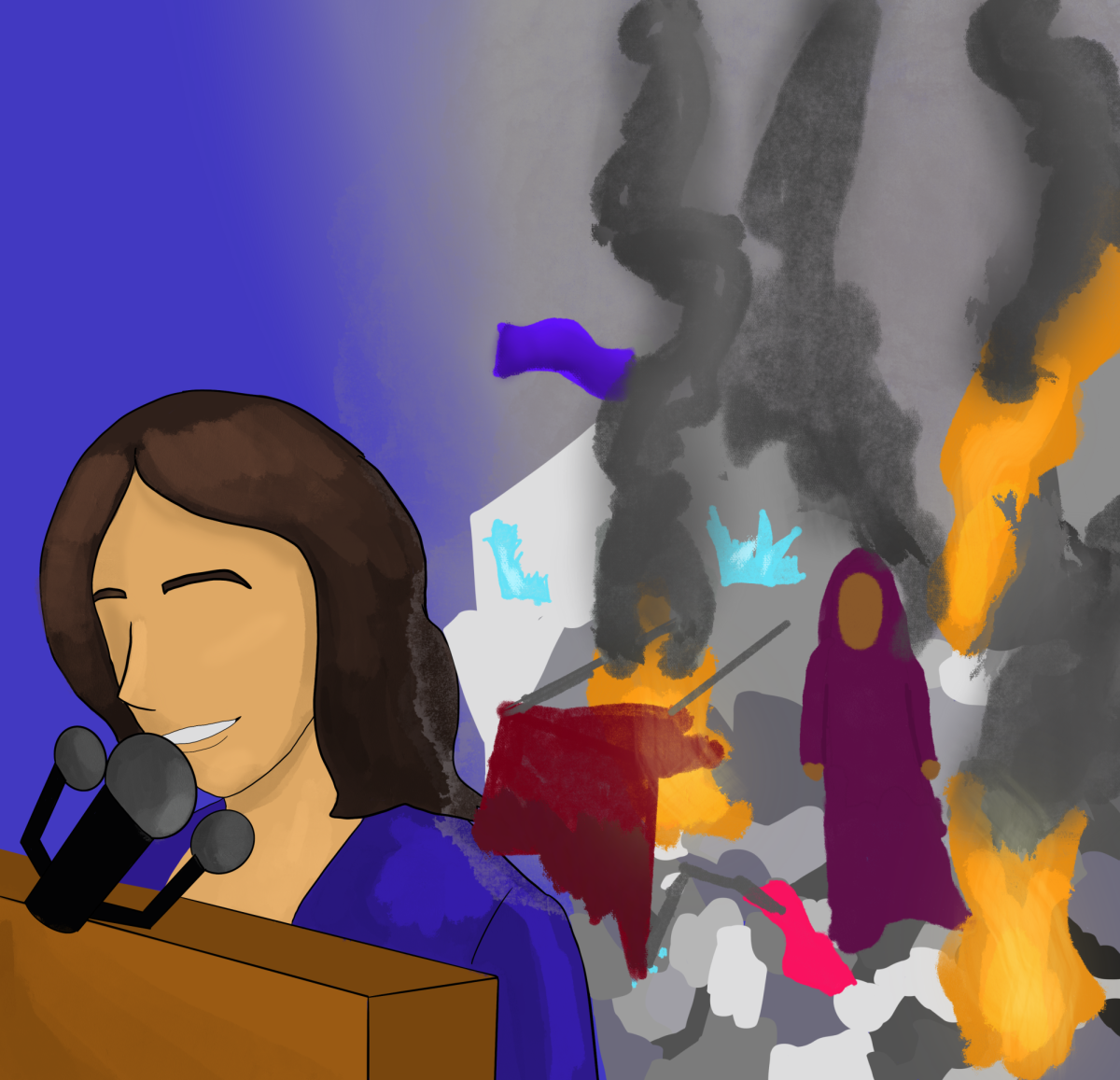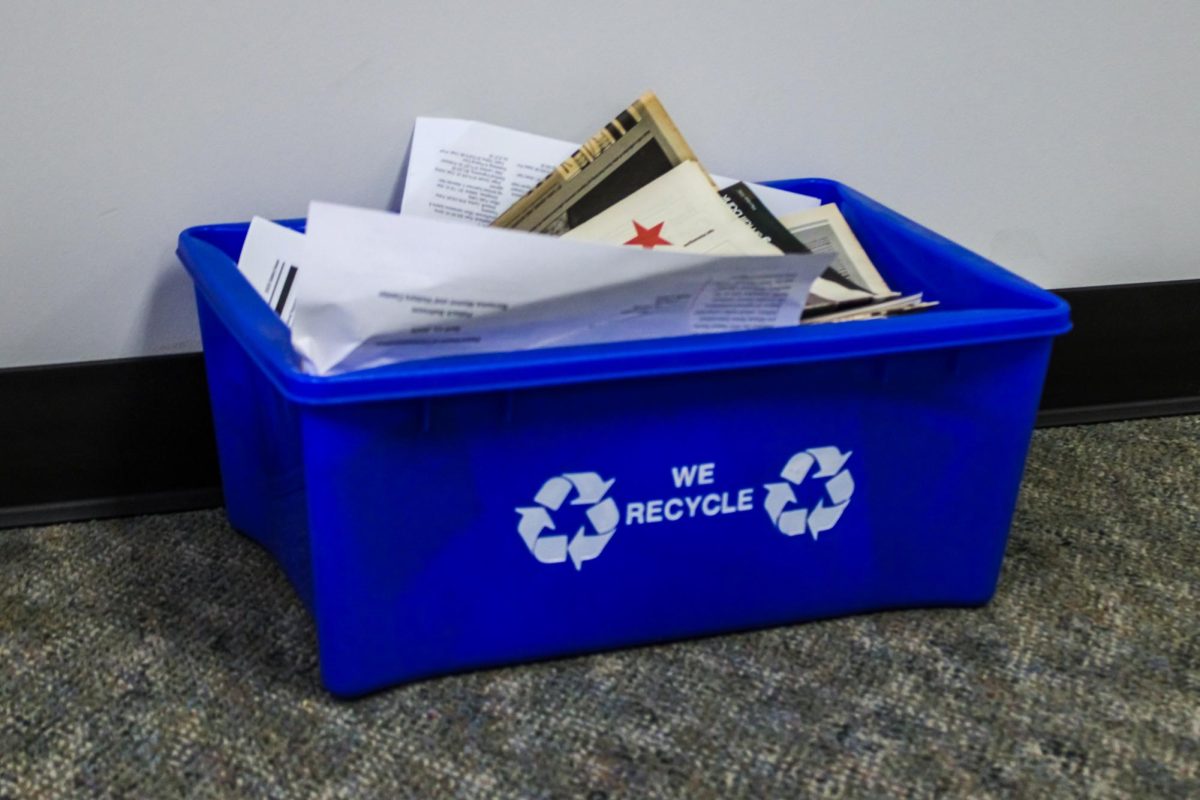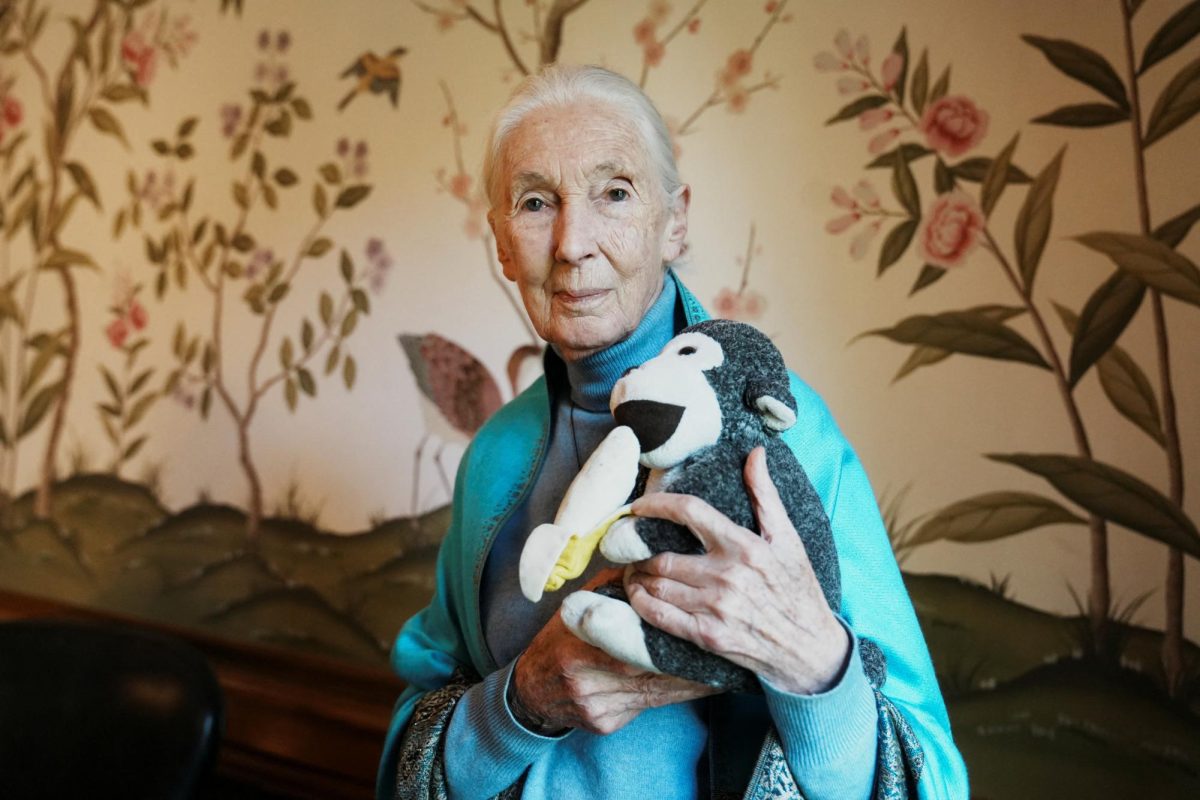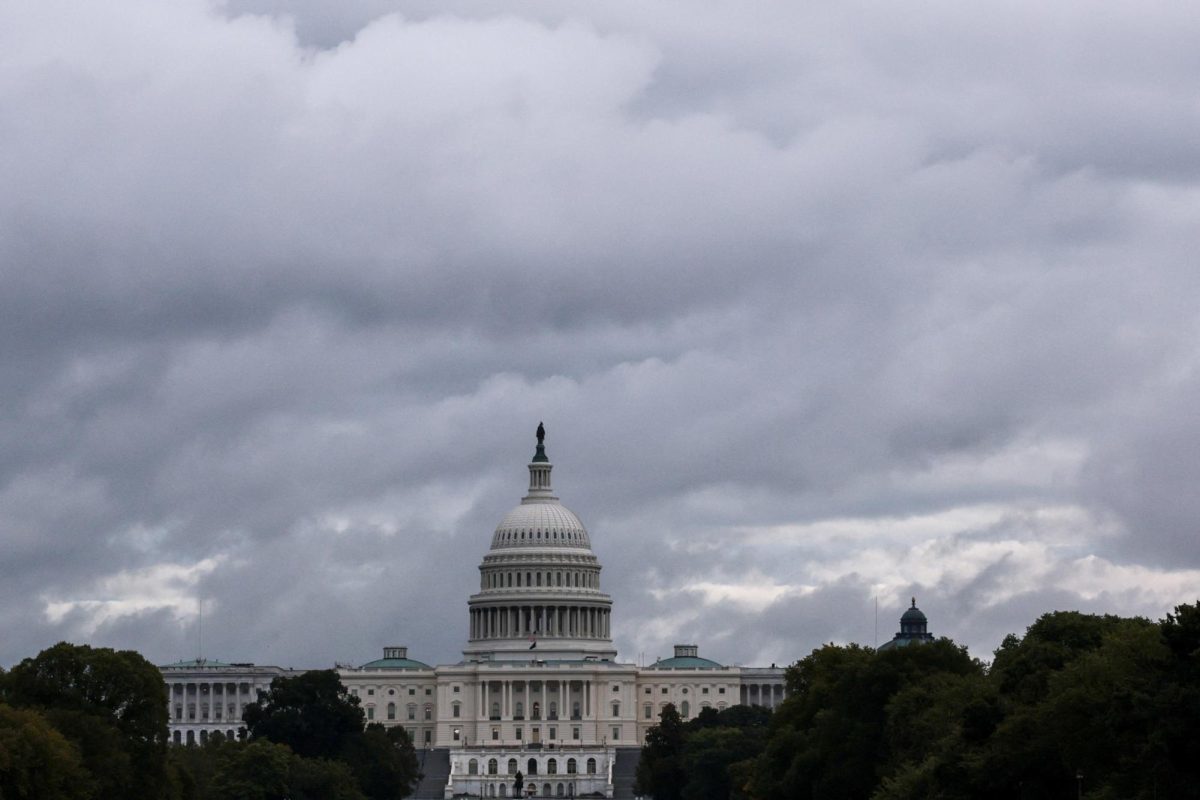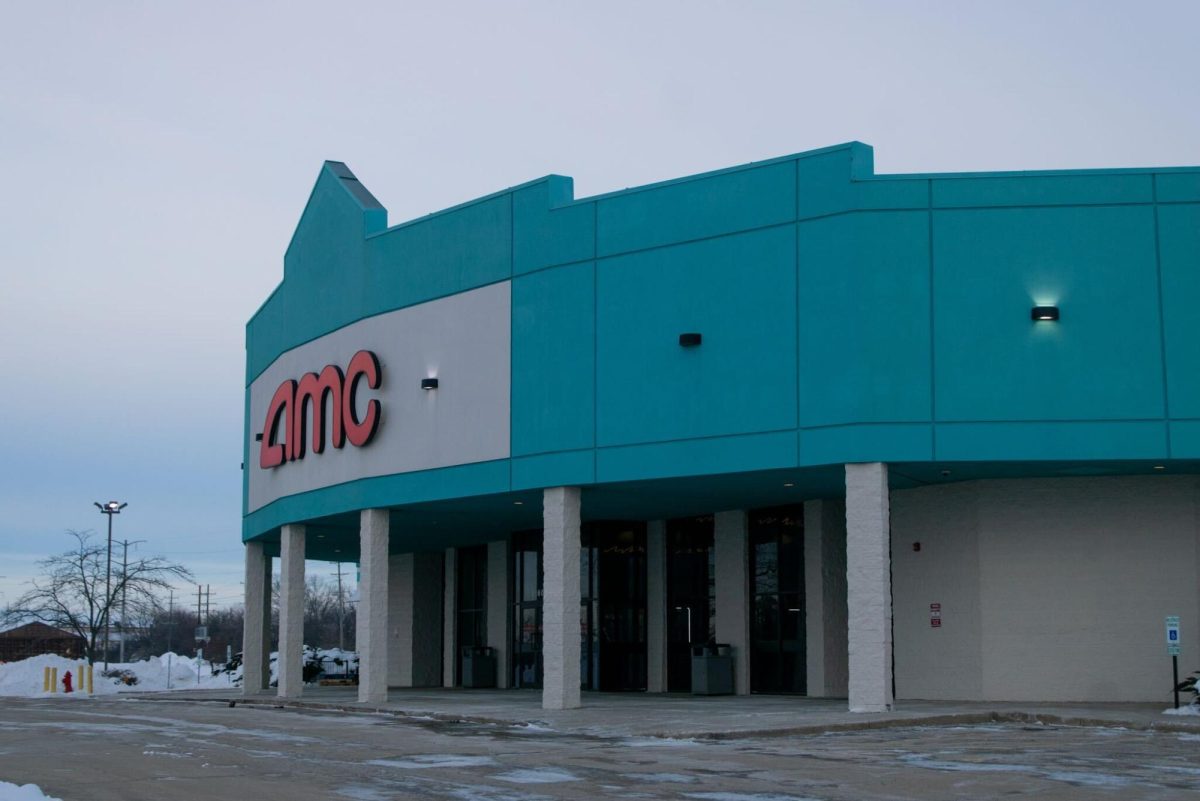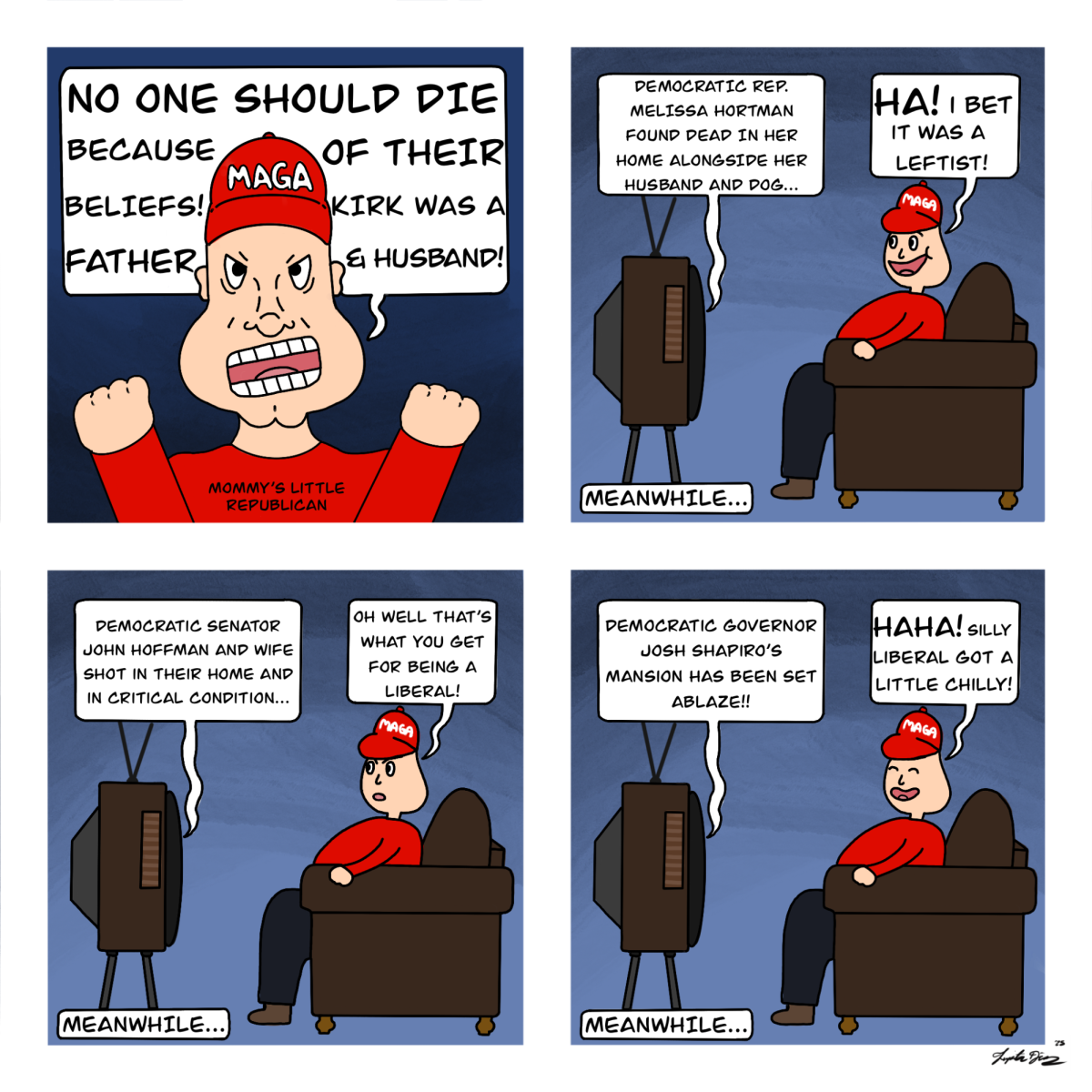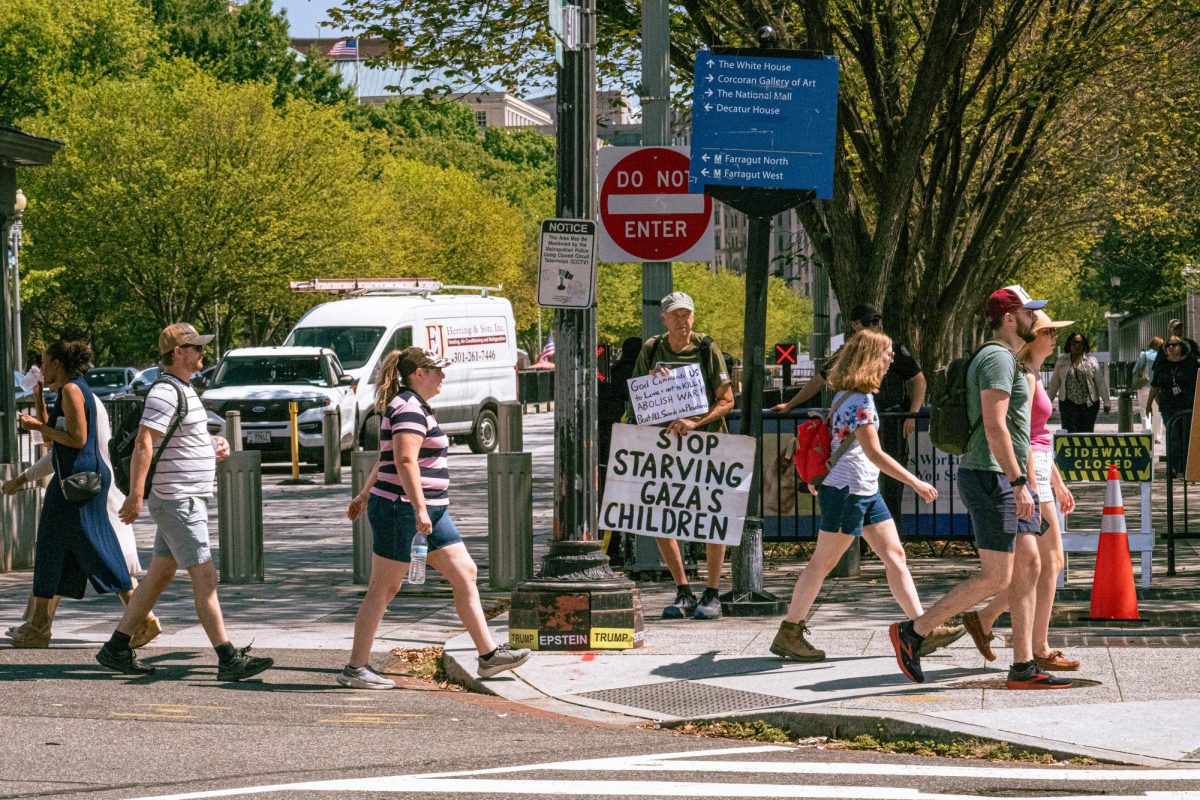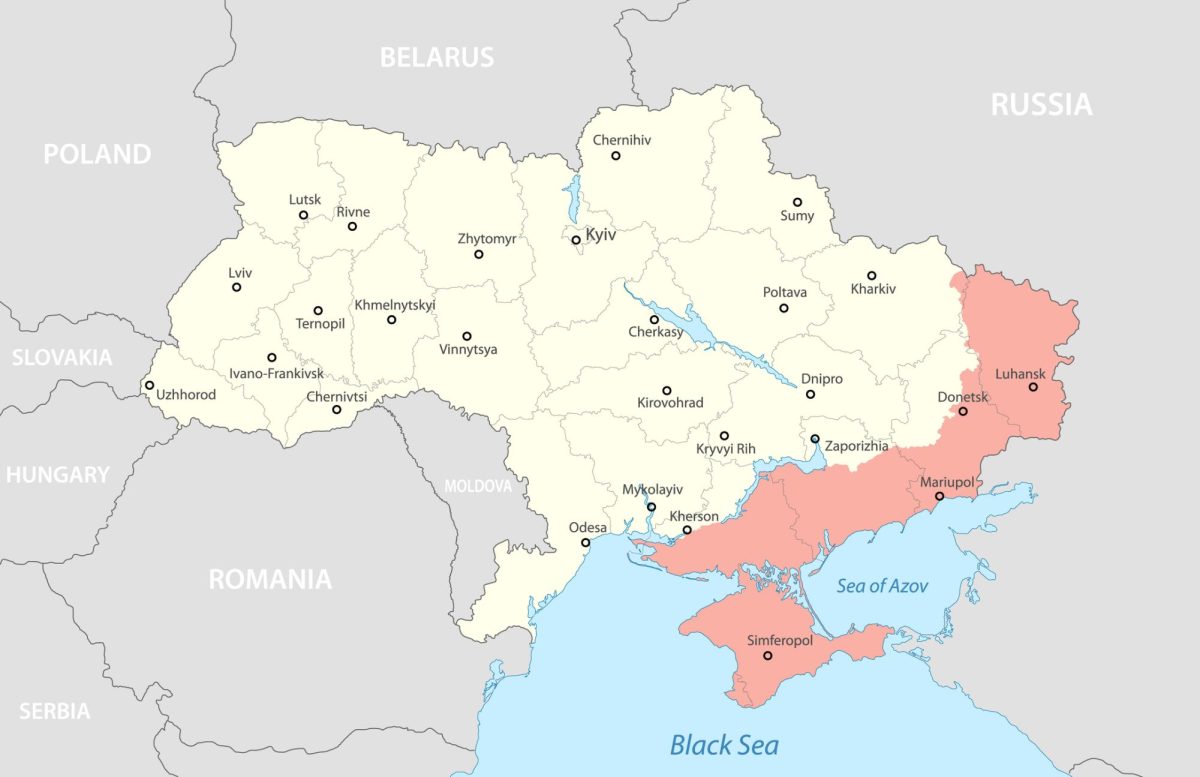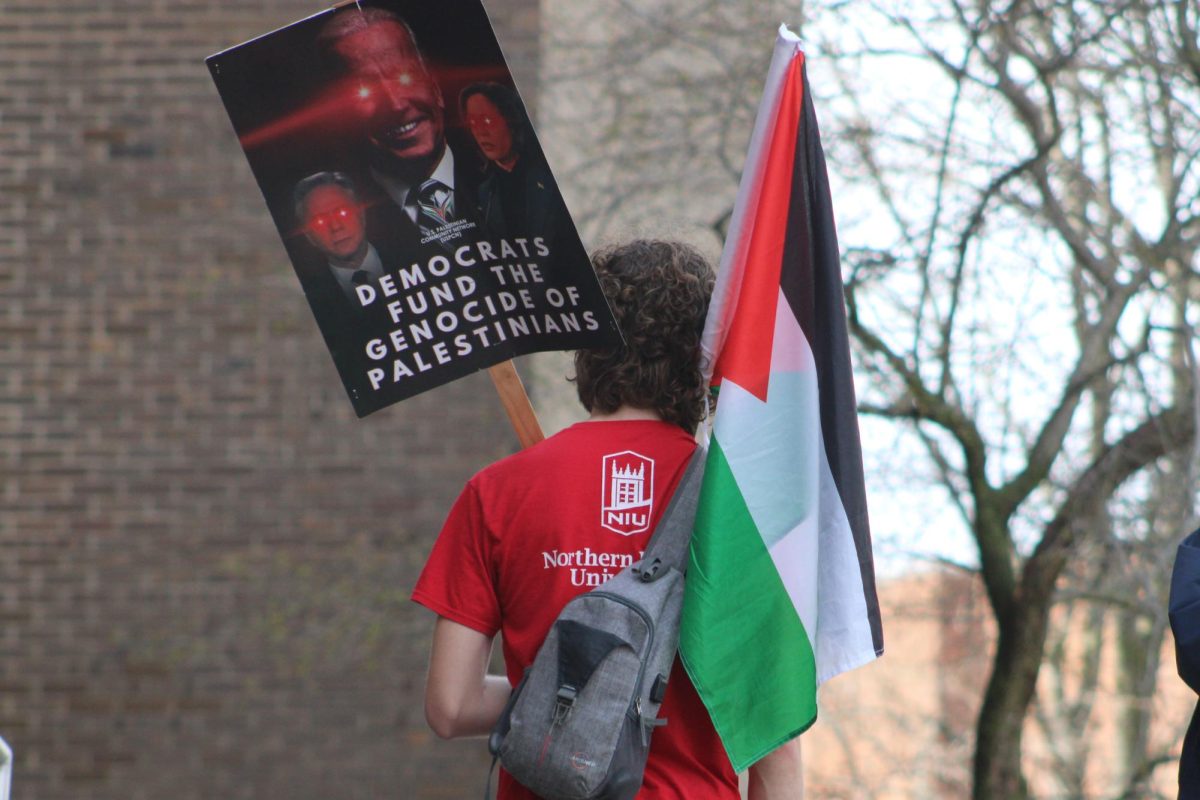Rage echoes in the streets outside of the United Center in Chicago where the 2024 Democratic National Convention is being held. Passionate chants gather force as a crowd of thousands forms. Protesters demanding an end to U.S. aid to Israeli forces in their brutal and indiscriminate siege of the Gaza Strip are met with silence.
The siege in Gaza has claimed the lives of over 40,000 Palestinians and driven millions more from their home. Israel has no plans of stopping.
Over the course of a four-day period, from Aug. 19 to 22, blaring music and flashy lights accompanied speeches that glorified the Democratic establishment.
With big smiles, former presidents Bill Clinton and Barack Obama congratulated the Biden presidency on bringing peace and sensibility back to the office. Neither says a word about Gaza — as if the topic is radioactive. Back outside, protesters fought on, desperate to be heard, desperate for their cause to be acknowledged.
When Congresswoman Alexandria Ocasio-Cortez delivered what might be the best speech of the entire convention, she treaded carefully, mentioning the war only in brief and acknowledging the need for a ceasefire. This is the most direct and unconditional support the people of Gaza will get by the time the DNC concludes.
Finally, when Vice President Kamala Harris took the stage on the convention’s last day, she addressed the issue head-on.
“President Biden and I are working around the clock. Because now is the time to get a hostage deal and ceasefire done,” Harris said.
This would have been a fine enough statement on its own, but Harris qualified it.
“Let me be clear,” Harris added. “I will always stand up for Israel’s right to defend itself and I will always ensure Israel has the ability to defend itself.”
She continued, only sympathizing with Gaza’s suffering after invoking images of the Oct. 7 attacks. It is clear her support is conditional.
There is no condemnation of Israel; yet, the crowd erupts into cheers.
This is the story of the 2024 DNC, but it didn’t have to be. In this crucial year of American politics, there is more than enough room for rallying, encouraging and energizing the Democratic base. There is ample time for self-congratulation, which – to the Democratic party’s credit – is much deserved, but it cannot be all that is spoken on, especially when the speaking is taking place on as large a platform as the DNC stage.
There must be substance, and to a large portion of youth voters who consider it a breaking point, substance means Palestine’s freedom.
Of American adults under the age of 29, over 60% favor the Palestinian people more than they do the Israeli people in the context of the war. That number climbs up to a staggering 76% when looking at adults under 29 who consider themselves Democrats, according to the Pew Research Center.
Considering that 66% of youth voters from ages 18 to 24 are registered as Democrats, according to a separate Pew Research survey, this should be troubling news to the party who relies so heavily on their vote.
The unpopularity of Israel’s assault on Gaza with the Democratic base is unsurprising when accounting for why many of its constituents support the Democratic establishment in the first place.
For decades now, the Democrats have positioned themselves as the party of the oppressed, of the discriminated. But now, at a time when activism for the Palestinian people is needed more than ever, the party has gone quiet.
Silence should not be an option for the Democrats, certainly not if they intend to maintain their image as the socially progressive party.
Such silence is especially deafening when contrasted against the Republican party’s vocal support of Israel, with Former President Trump going so far as to say during his 2024 debate against President Biden that the United States should simply let Israel “finish the job” in Gaza.
With passionate endorsement from the Republican party and meek support from the Democrats, Israel has both parties standing behind it in some capacity. Gaza, meanwhile, has no voice on the political stage. All the more reason for the Democrats, who posture themselves as the party of the voiceless, to speak up.
Of course, events such as the DNC have historically been used to unite, not fracture. Issues as contentious as the Israel-Palestine conflict are rarely mentioned, explained Ferald Bryan, a professor of rhetoric and public communication at NIU.
“The whole purpose of a political convention, usually, is to bring the party together after what has been a kind of rough and tumble primary campaign, and it’s to unify the party, to formally slate candidates and to especially get everyone united to go to the general election,” Bryan said.
Bryan believes that purpose likely influenced Vice President Harris’s decision to shy away from the war in her speech.
“I think she probably intentionally wanted to avoid the controversy and project, as I say, the overall theme of unity,” Bryan said.
While this is certainly true, silence on this particular issue is nearly as controversial as vocal support.
The Democratic party was faced with a lose-lose scenario where activism nets vitriol and silence nets disappointment. Both leave thousands unsatisfied. One of the two, however, rallies support for an economically, socially and physically crippled people, while the other sweeps their suffering under the rug.


